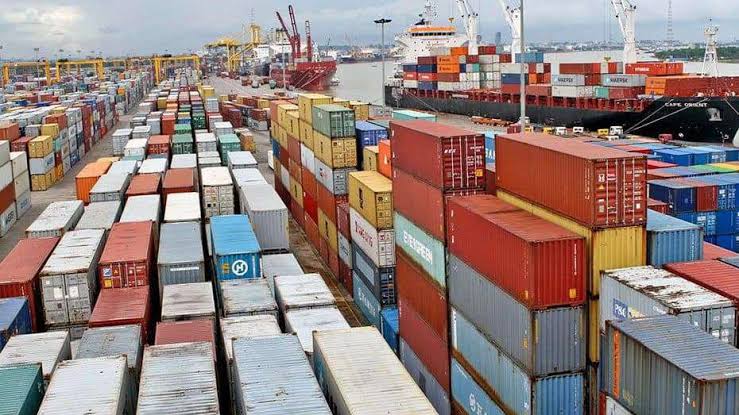
The Nigerian Export Promotion Council (NEPC) has reported that Nigeria’s non-oil exports for the first half of 2025 reached a value of \$3.225 billion.
The Director-General of the council, Mrs. Nonye Ayeni, made this disclosure in Abuja on Sunday while presenting the 2025 Half-Year Non-Oil Export Performance Report to the media.
Ayeni explained that the report was designed to provide a detailed overview of the council’s achievements, challenges, and future prospects.
“I am pleased to inform you that non-oil products exported in the first half of 2025 were valued at 3.225 billion dollars.
“This shows an increase of 19.59 per cent as against the sum of 2.696 billion dollars recorded for the first half of the year 2024.
“The volume also increased to 4.04 million metric tonnes, compared to the 3,83 million metric tonnes for the same period of 2024,” she said.
The DG recalled that in April, non-oil exports in the first quarter of 2025 had already hit \$1.791 billion, a 24.75 percent rise from the \$1.436 billion recorded in the first quarter of 2024. She added that the export volume grew to 2.416 million metric tonnes, representing a 24.3 percent increase over the 1.937 million metric tonnes recorded in the same period of 2024.
Ayeni noted that 236 distinct products were exported in the first half of 2025 — up 16.83 percent from the 202 products exported in the first half of 2024. These included agricultural commodities, extractive industry goods, as well as manufactured and semi-processed products.
“However, it is pertinent to state that the non-oil export of Nigerian products is gradually diversifying from traditional agriculture exports to semi-manufactured products,” she said.
According to data from Pre-shipment Inspection Agents (PIAs), cocoa beans topped the list of the 20 most exported products in the first half of 2025, accounting for 34.88 percent of total export value compared to 23.18 percent in the same period of 2024.
“Urea/fertiliser came second with 17.65 per cent as against 13.78 per cent for the first half of 2024,” she added.
Ayeni highlighted that the African Continental Free Trade Area (AfCFTA) has expanded market access and provided tariff relief for Nigerian exporters. She further mentioned the council’s various export intervention initiatives, such as training in quality standards, packaging, labeling, export documentation, and certifications.
“During the period under review, the council also facilitated market access and market linkage programmes for our exporting companies, thereby giving their products more visibility in the global market.
“The growth in value-added exports improved earnings, as more exporters are now imbuing the culture of value addition to their products.
“The rising demand from emerging economies, such as India, Brazil, Vietnam and Africa have, however, increased Nigeria’s non-oil export volumes and diversity,” she said.
She reaffirmed the council’s resolve to collaborate with the Ministry of Industry, Trade, and Investment and other key stakeholders to sustain this positive trend by boosting both the volume and value of Nigeria’s non-oil exports. These efforts, she noted, are in line with the Renewed Hope Agenda of President Bola Tinubu’s administration and the ministry’s policy direction.








